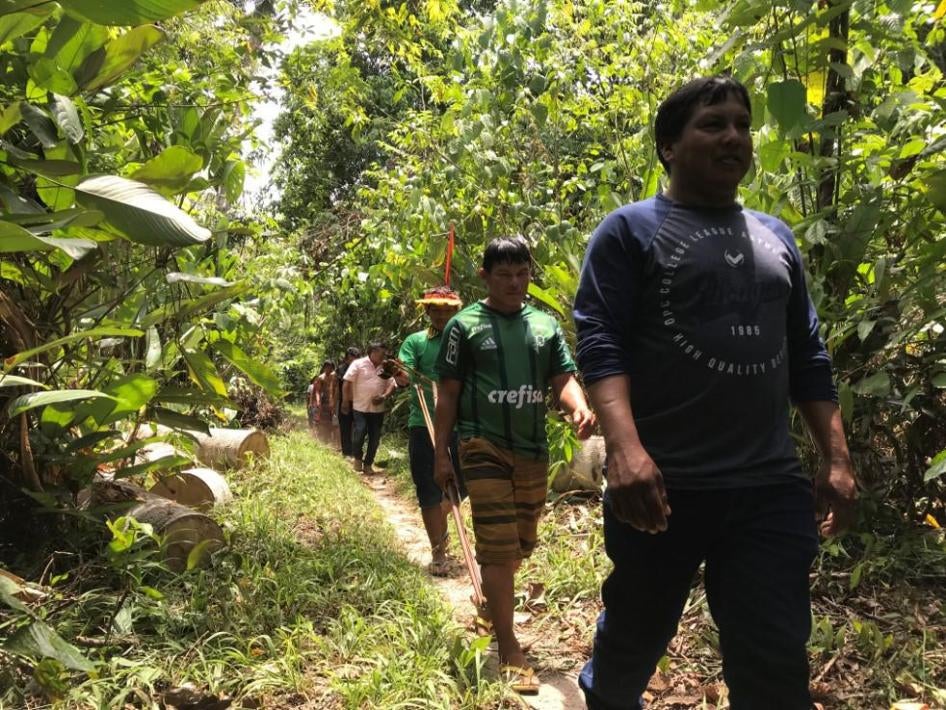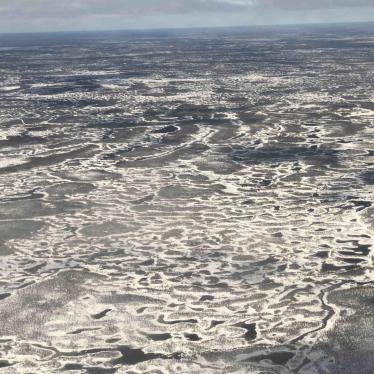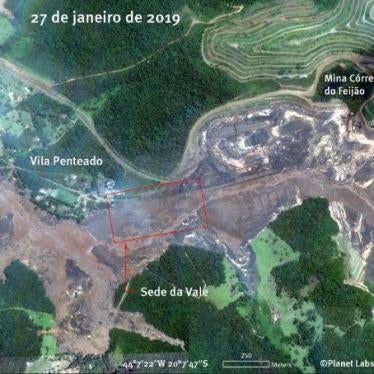I met Itahu Ka’apor after a long journey on a rough dirt track into the indigenous territory of Alto Turiaçu, in the Brazilian Amazon. After welcoming me and my colleagues into his community, he spent several days showing us how his people, the Ka’apor, defend the forest that is central to their identity and their survival from the scourge of illegal logging.
That has included relocating villages near the border of their territory to deter trespassing by illegal loggers. This has made the Ka’apor a frequent target of intimidation and sometimes violence.
Like Itahu, many defenders face great risk when they advocate for their communities’ rights in the face of environmental devastation. That’s why condemnation by the top UN human rights body of the human rights violations or abuses against them is significant.
On March 21, the UN Human Rights Council adopted a consensus resolution affirming “the positive, important and legitimate role” played by environmental defenders. The Council also noted more than 150 states have recognized some form of a right to a healthy environment.
The Council’s resolution comes almost exactly a year after the adoption of a landmark treaty on environmental rights in Latin America and the Caribbean that contains specific protections for environmental defenders and recognizes their key role for democracy and sustainable development.
At a time when even authorities in established democracies harass environmental defenders and roll back environmental safeguards that protect public health to benefit corporate interests, the Council called upon states “to strengthen democratic institutions, safeguard civic space, uphold the rule of law and combat impunity,” as key components to protect environmental defenders. The resolution also underscores the responsibility of businesses to respect the rights of defenders to carry out their work safely.
The UN Special Rapporteur on Human Rights Defenders has argued that attacks against environmental defenders should be understood as what they often are: “a direct result of the exploitation of natural resources that does not take into account the legitimate demands and concerns from local communities.”
The distance between a Council resolution and the realities of grassroots activists will remain a challenge, but environmental human rights defenders like Itahu Ka’apor and his civil society supporters now have a new tool to call for accountability – backed by the top global human rights body.










